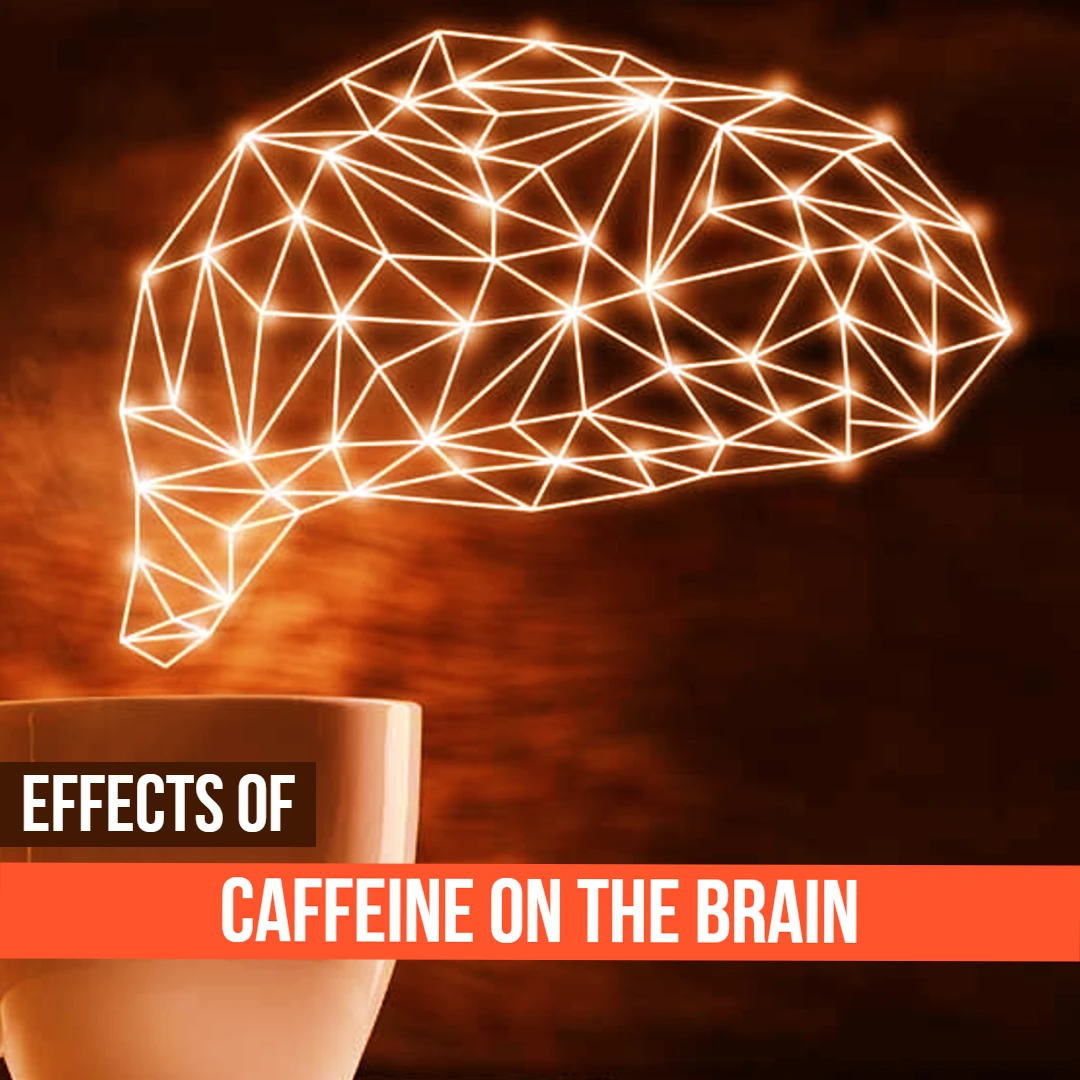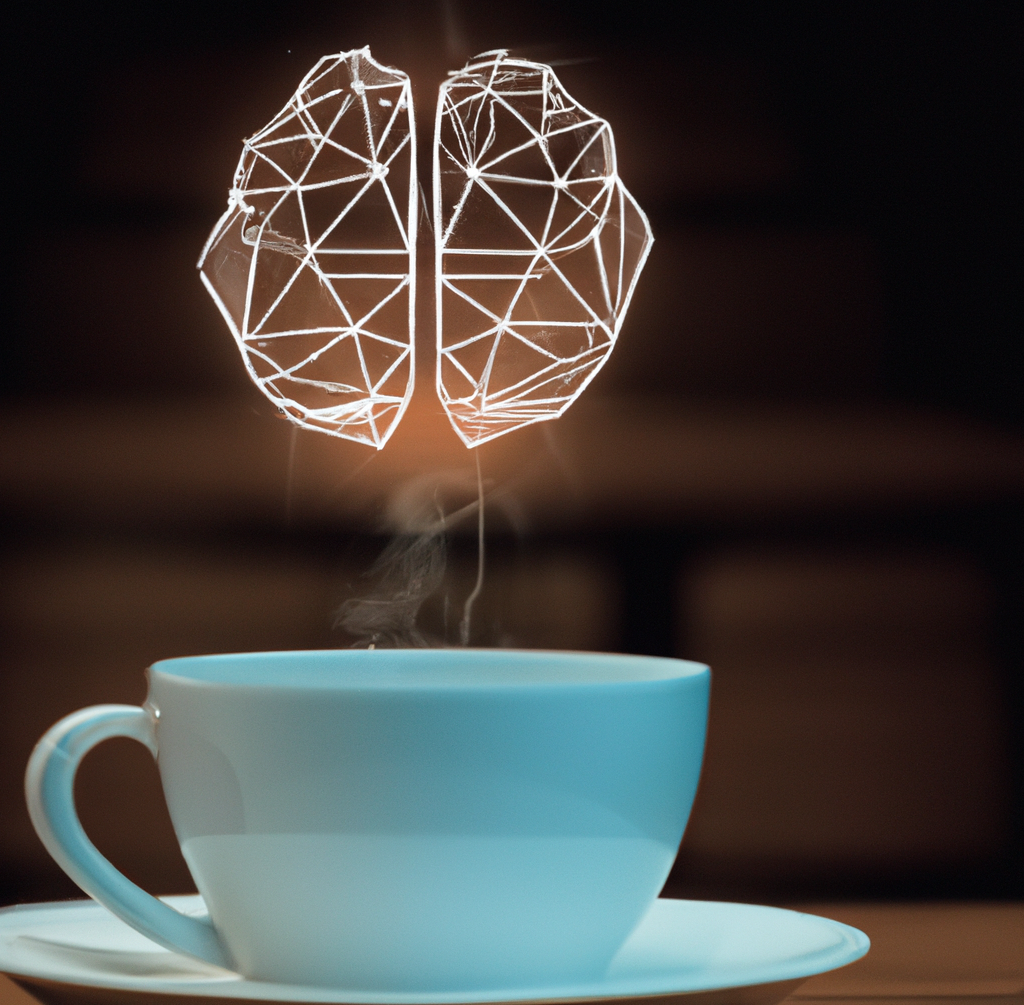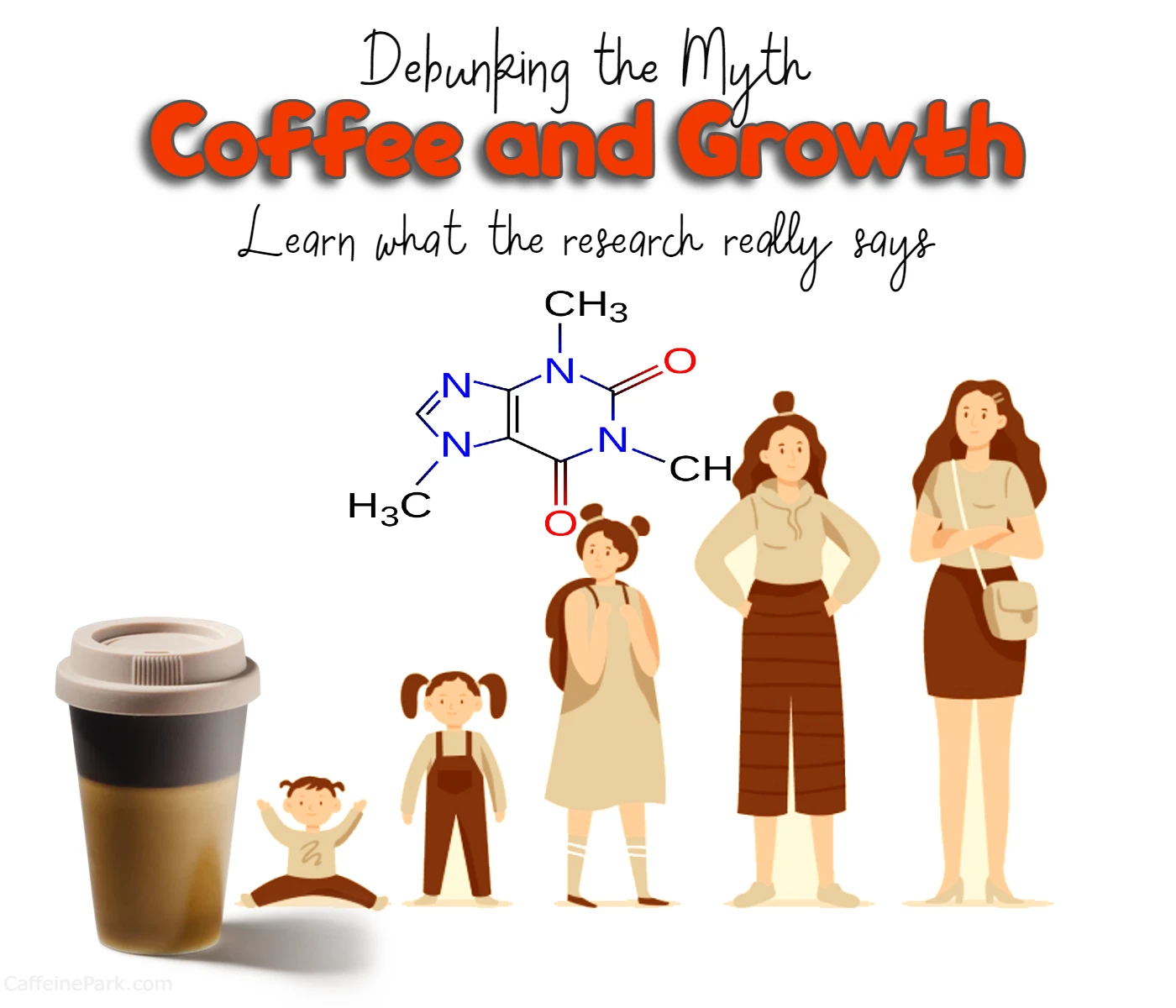Caffeine Effects on the Brain

Caffeine is a stimulant that affects the brain by blocking the effects of adenosine, a chemical that makes you feel tired. When you consume caffeine, it increases the activity of neurotransmitters such as dopamine and norepinephrine, which can lead to increased alertness and improved concentration. Caffeine can also increase the production of adrenaline, the “fight or flight” hormone, which can lead to an increase in heart rate, blood pressure, and metabolism.
In moderate amounts, caffeine can have beneficial effects on the brain, including increased alertness, improved concentration, and reduced fatigue. However, consuming too much caffeine can have negative effects on the body and the brain. Some of the potential negative effects of caffeine on the brain include:
- Anxiety and stress: Caffeine can increase feelings of anxiety and stress in some people, especially in large amounts.
- Sleep disturbance: Caffeine can disrupt sleep patterns and cause insomnia, especially if it is consumed later in the day. This can lead to long-term sleep disturbance and fatigue.
- Decreased cognitive function: Some studies have suggested that long-term caffeine consumption may lead to decreased cognitive function, including impaired memory and learning.
- Dependence: Regular caffeine consumption can lead to physical dependence on the substance. If you stop consuming caffeine suddenly, you may experience withdrawal symptoms such as headache, fatigue, and irritability.
Caffeine is one of the most popular stimulants used by people. It can have a very positive effect on your brain and body. It has been shown that caffeine increases the level of adrenaline in the blood, which causes our heart rate to increase. Heart rate is one of the most important organs when it comes to pumping blood throughout our body, so any caffeine near it might make it work better.
Furthermore, coffee also increases the production of dopamine, which will make you feel happier and more energized. If you drink coffee before working out, it should not be a problem as long as you do not overdo it and drink more than 4-5 cups in a day. The idea that caffeine is bad because it will negatively affect the brain long term is a myth. Caffeine actually has a lot of benefits, and it can help you stay sharp and awake while boosting your mood.
Long-Term effects of caffeine on the Brain
Caffeine is a stimulant that can have short-term effects on the brain, including increased alertness, improved concentration, and reduced fatigue. In moderate amounts, caffeine can be safe and even beneficial for some people. However, consuming too much caffeine can have negative effects on the body and the brain. Some of the long-term effects of caffeine on the brain include:
- Dependence: Regular caffeine consumption can lead to physical dependence on the substance. If you stop consuming caffeine suddenly, you may experience withdrawal symptoms such as headache, fatigue, and irritability.
- Sleep disturbance: Caffeine can disrupt sleep patterns and cause insomnia, especially if it is consumed later in the day. This can lead to long-term sleep disturbance and fatigue.
- Anxiety and stress: Caffeine can increase feelings of anxiety and stress in some people, especially in large amounts.
- Decreased cognitive function: Some studies have suggested that long-term caffeine consumption may lead to decreased cognitive function, including impaired memory and learning.
- Changes in brain chemistry: Caffeine can alter the levels of certain neurotransmitters in the brain, such as dopamine and serotonin. This can lead to changes in mood and behavior.

Caffeine and the Brain
Caffeine, a stimulant, is the most widely consumed psychoactive substance in the world. It works by blocking the action of a neurotransmitter called adenosine, which promotes feelings of drowsiness. Caffeine molecules bind to adenosine receptors in the brain, preventing adenosine from binding and causing drowsiness. As a result, caffeine can increase alertness and reduce fatigue.
Adenosine and the Brain
Adenosine is a naturally occurring molecule in the brain that plays a role in regulating sleep and wake cycles. Over the course of the day, adenosine levels build up in the brain, promoting feelings of drowsiness and encouraging sleep. At night, when adenosine levels are high, the brain is in a state of “quiet wakefulness”, which is characterized by a lack of mental activity and a reduction in sensory processing.
Does the Brain Need Caffeine?
The brain does not require caffeine to function properly. However, caffeine can have positive effects on cognitive function, such as improving memory, attention, and reaction time. Additionally, caffeine can also reduce the risk of cognitive decline in older adults. While caffeine can provide temporary relief from feelings of drowsiness, it does not address the underlying causes of fatigue, such as lack of sleep or poor sleep quality.
Caffeine Dependence
While caffeine can have positive effects on cognitive function and mood, excessive caffeine intake or chronic use can lead to dependence. Regular consumption of caffeine can lead to physical dependence, and abrupt cessation of caffeine intake can lead to withdrawal symptoms such as headache, fatigue, and irritability. Moreover, some studies have suggested that excessive caffeine intake can lead to a higher risk of developing disorders such as anxiety and depression.
Does your brain need caffeine?
No, your brain does not need caffeine to function properly. Caffeine is a stimulant that can have short-term effects on the brain, including increased alertness and improved concentration. However, the brain is able to function normally without caffeine, and it is not essential for good health.
While caffeine may have some potential benefits, it is important to consume it in moderation. Consuming too much caffeine can have negative effects on the body and the brain, including anxiety, sleep disturbance, and impaired cognitive function. It is also possible to develop a physical dependence on caffeine, which can lead to withdrawal symptoms when you stop consuming it.
If you are considering incorporating caffeine into your diet, it is a good idea to pay attention to how it affects your body and brain and to discuss your caffeine consumption with a healthcare professional if you have any concerns.
Does caffeine kill brain cells?
Caffeine and Brain Cell Death
Caffeine does not directly kill brain cells, but excessive caffeine intake or chronic use of caffeine can lead to various negative effects on the brain and overall health. Studies have shown that high levels of caffeine intake can lead to an increase in the production of stress hormones such as cortisol, which can be harmful to the brain in the long term. Additionally, excessive caffeine intake can lead to a decrease in blood flow to the brain, which can be damaging to brain cells.
Caffeine and Neurotoxicity
There is some evidence to suggest that excessive caffeine intake can lead to neurotoxicity, which is the toxic effect of chemicals on nerve cells. High levels of caffeine intake can lead to increased levels of reactive oxygen species (ROS), which can cause oxidative stress and damage to brain cells. Additionally, studies have suggested that caffeine can lead to the accumulation of beta-amyloid plaques in the brain, which are associated with the development of Alzheimer’s disease.
Caffeine and Cognitive Function
While excessive caffeine intake can have negative effects on the brain, moderate caffeine intake can have positive effects on cognitive function. Studies have shown that caffeine can improve memory, attention, and reaction time. Additionally, caffeine can also reduce the risk of cognitive decline in older adults.
Caffeine and Overall Health
Caffeine intake can also have an effect on overall health. High levels of caffeine intake can lead to high blood pressure, heart palpitations, and other health problems. Additionally, excessive caffeine intake can lead to addiction, withdrawal symptoms, and other negative effects on mental health.
Does caffeine pose a danger to your brain health?
Pure and highly concentrated caffeine products pose a serious risk to the health of people who consume them. At least 2 people have died because of caffeine poisoning. Caffeine-containing drinks are addictive and dangerous. (FDA)
Caffeine is a stimulant. A teaspoon of pure powdered caffeine is poisonous if ingested. Liquid caffeine products also have high concentrations of caffeine, so they should be avoided. Drinking too much caffeine can kill you.
Conclusion
In conclusion, while caffeine does not directly kill brain cells, excessive caffeine intake or chronic use of caffeine can lead to various negative effects on the brain and overall health. Moderate caffeine intake can have positive effects on cognitive function and mood, but it is important to consume caffeine in moderation and be aware of one’s personal sensitivity to its effects, as well as potential interactions with other medications and health conditions.
Read More:





